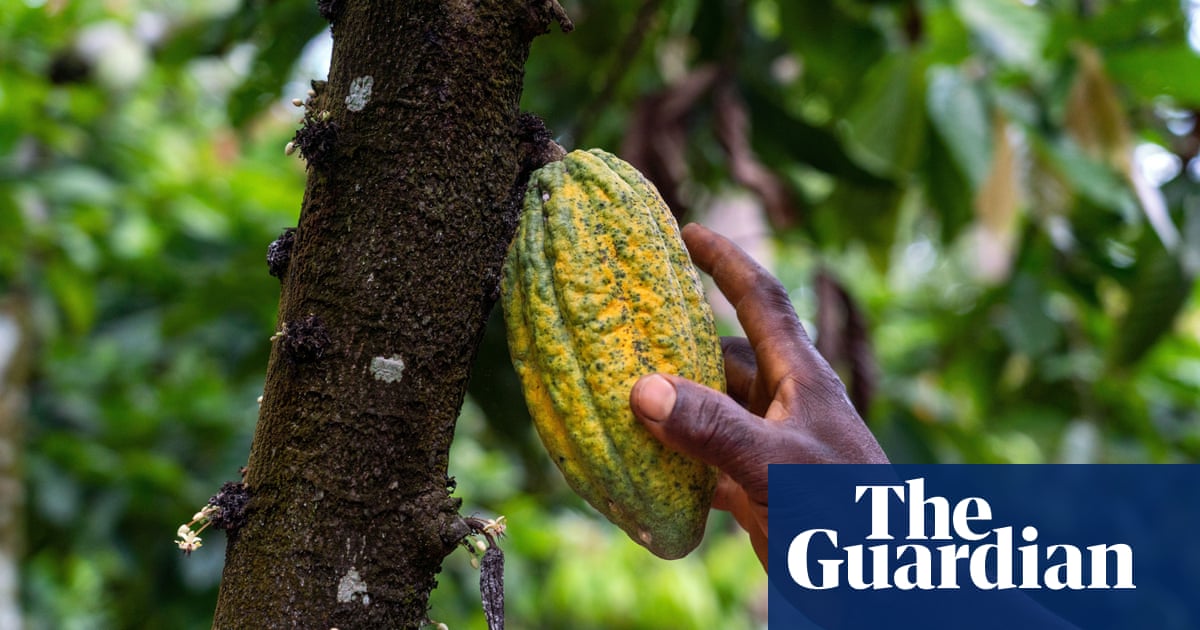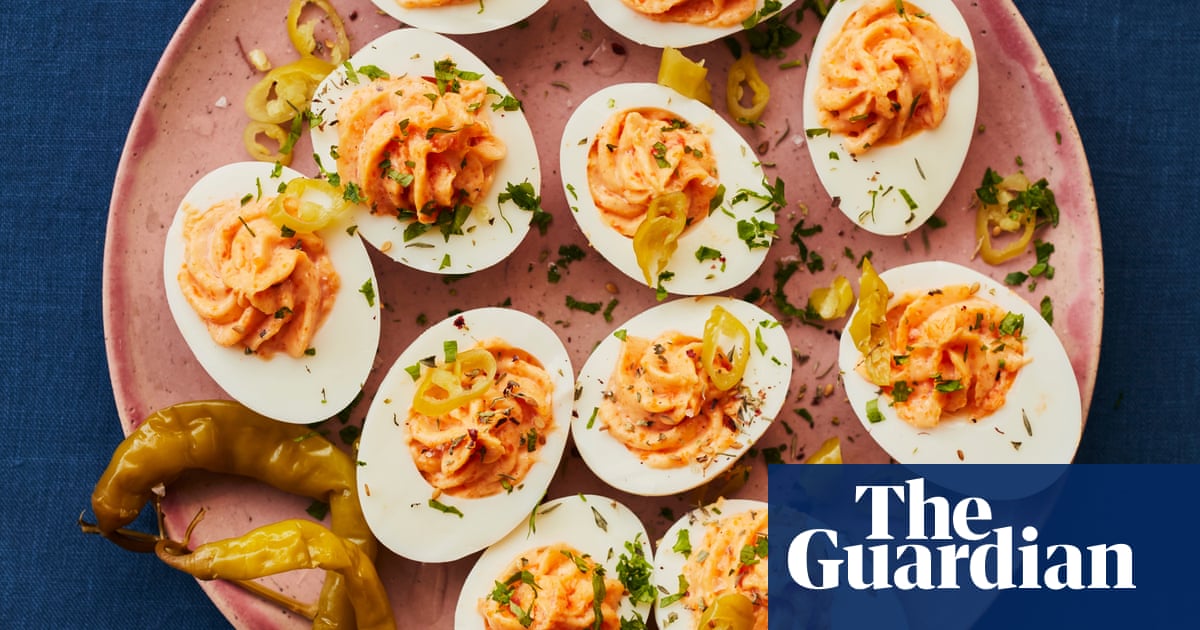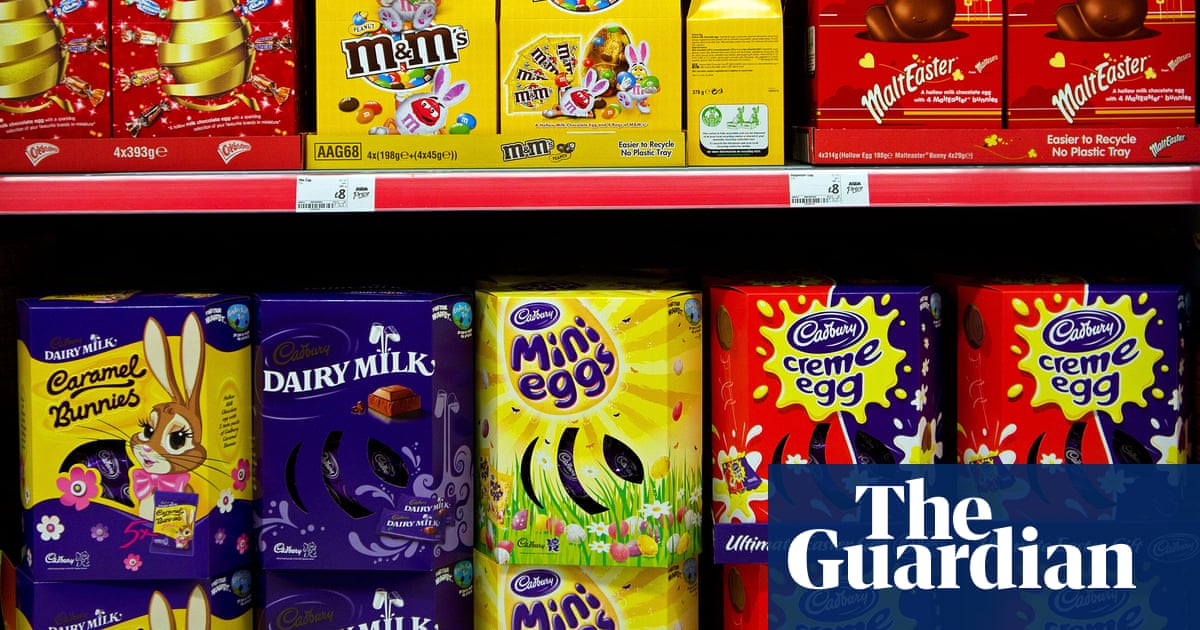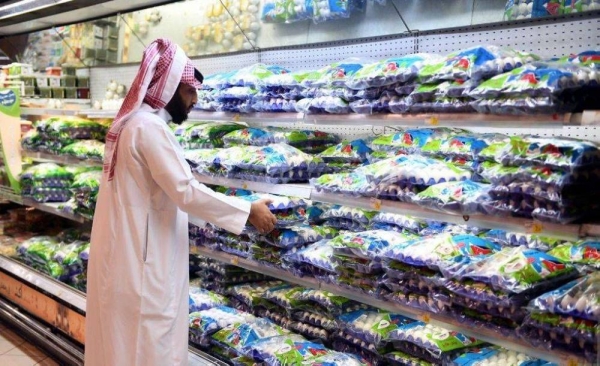
“Who has the strongest egg?”
Sylvie Saab
My mum dyes the eggs usually using the skin of an onion. They are usually a dark brown or a maroon colour, if she has used a red onion. Then she presents them on a platter, and we choose an egg – everyone chooses an egg – and hold that egg in your hand and smash it on someone else’s egg. Usually one of those eggs will crack, if yours hasn’t cracked you keep going with whoever else’s egg hasn’t cracked until there’s a winner.
There’s no significance attached to it. There’s just a whole lot of banter. At the beginning when you choose your egg, there’s a bit of competition. People trying to choose the egg that has the strongest shell. Who has the strongest egg?
It’s a Lebanese tradition. It might have meant something once upon a time, but now it’s just a competition.
It’s fun. The kids love it. We did it regardless of having children. We did it before we procreated. You eat the eggs afterwards, so there’s a meal that follows. It’s just something I remember from my childhood, it’s always been what’s marked Easter.
It’s totally important to maintain that connection to my Lebanese.
Now the kids are a bit older, if i’m not doing it with the extended family I’ll do it with my immediate family.
It’s a relatively easy tradition that you can continue to maintain. It’s something fun that everyone can partake in, as opposed to midnight mass. It’s a nice thing to be able to pass down.
“A Maundy Thursday service is often very quiet, very still”
Kate Lyons (Pacific editor)
For many Christians, Easter is the most significant moment in the religious calendar. For me, the most sacred, most profound moment in this sacred and profound weekend comes on Maundy Thursday. It is a moment of stillness and quiet before the chaos of the weekend begins and it commemorates that moment of stillness before the storm of the events of the first Easter when Jesus ate his last supper with his disciples, washed their feet, then went to the Garden of Gethsemane and prayed with anguish, fearing the death he knew awaited him the next day.
A Maundy Thursday service is often very quiet, very still. There are readings, songs performed while people sit in reflection, candles that are slowly, one-by-one snuffed out. Its simplicity and quiet gives me space each year to reflect on the suffering that is at the heart of the Christian story, and to face and grieve those heartaches I might have been able to dodge or drown out throughout the rest of the year. I rarely make it out of a Maundy Thursday service without weeping.
The word “Maundy” comes from the Latin word for “command”. It refers to Jesus’ last and most important commandment to his followers: Love one another as I have loved you. Maundy Thursday reorients me each year, reminds me that the heart of the faith I hold is – or should be – love.
“I will carry that tradition on until I’m not here any more.”
Shirley Campbell
Pickled fish is a tradition from South Africa. That tradition has stuck with me. We just had 30 years in Australia this January; we arrived on 10 January 1991. I still make my pickled fish, and we normally have that with hot cross buns.
On Good Friday we don’t eat meat, and that is religious. All South Africans that I know that are living in Australia, they all do pickled fish for Good Friday.
In South Africa that is all we had on Good Friday. Breakfast was normally a hot cross bun. Lunch was pickled fish and buns. Dinner was pickled fish and buns. When we came to Australia, my children hated the pickled fish. I still make it because I have a few Australian friends who love it. But that’s when I started making the crab and prawn curry, which they all love.
My son cooks it as well. He’s cooking the curry for his wife’s family. So my children will carry on the tradition of the crab and prawn curry, whereas the pickled fish – I don’t think they will. Being in your 70s, you carry on the tradition you grew up with. It’s important to me, and my husband loves it as well. I will carry that tradition on until I’m not here any more.
“We always get together for an Easter lunch. Always the same place, the same menu, the same friends.”
Kiaran Kirk and Julie Brooke
I [Kiaran] describe myself as a bread tragic. Whenever I travel, I search for the best artisan bakery in that city. I choose my hotel on that basis.
When [our daughter] Rosie had her third-year clinical placement, she was in Albury, so I did what I always do, and I worked out where the best bakery is. What came up in Albury was a woman who calls herself the Bicycle Baker. For a baker, the busiest time in the year is this week. For the last three years we have gone down to help.
Two years ago we were with The Bicycle Baker and we did a blind hot cross bun tasting. They were from different cities and countries and I got seven out of seven.
We have friends with kids the same age as ours and we always get together for an Easter lunch. We’ve been doing it over 20 years now. Always the same place, always the same menu, the same friends. Always roast lamb, lemon meringue pie, hot cross bun pudding. We bring bottles of wine from the 1980s and we sit and reflect on what we were doing on the years the particular wine came from.












